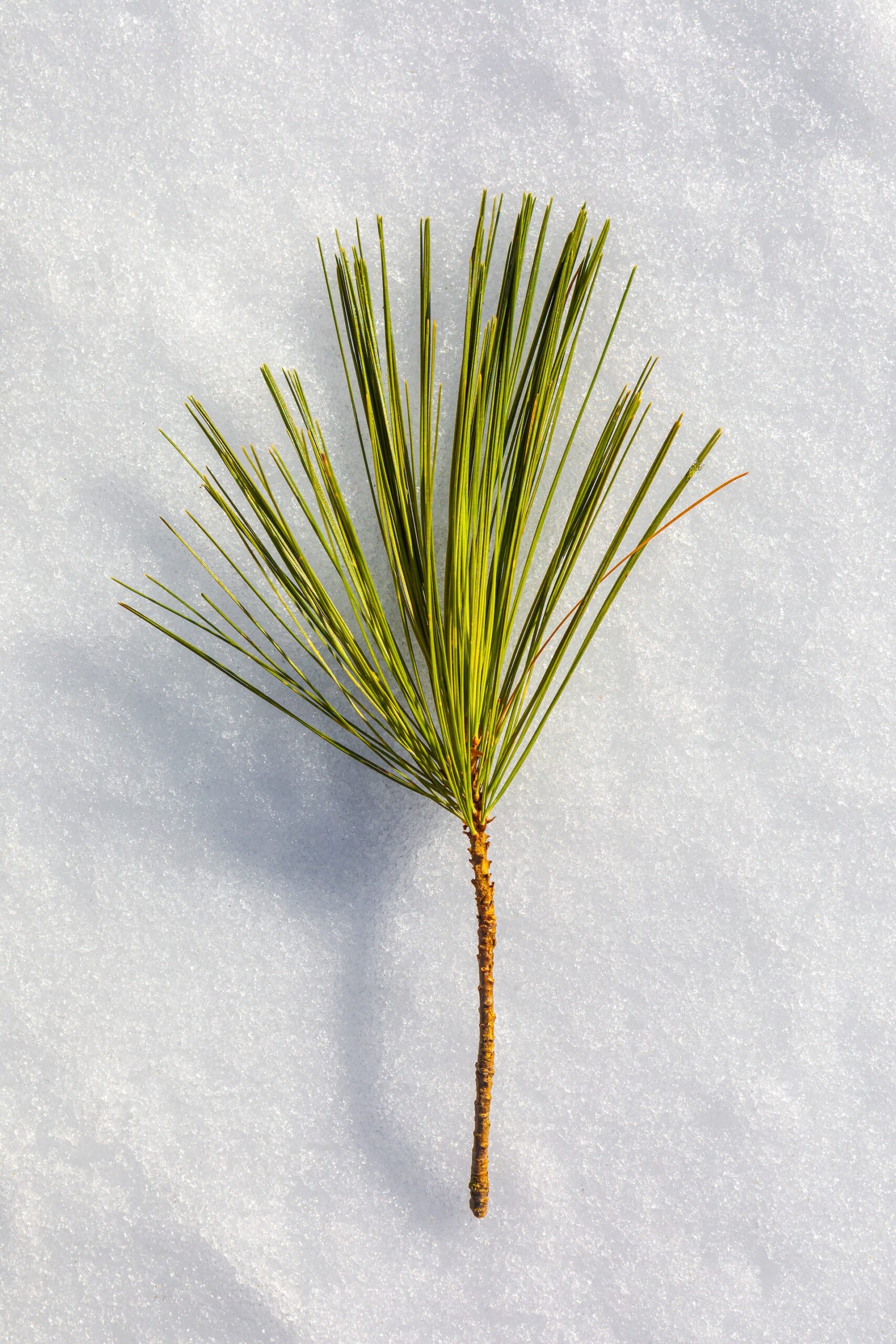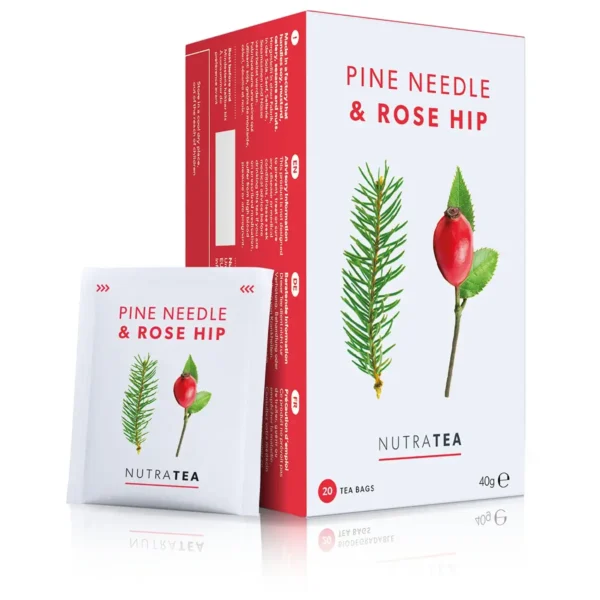SLEEP & RELAXATION IMMUNITY & ANTIOXIDANT VITALITY & INFLAMMATION ANTIOXIDANT & DIGESTION ENERGY & CLARITY WELLNESS & BLOOD SUGAR RESPIRATORY & IMMUNITY PREMIUM & FLAGSHIP BLENDS FLAGSHIP TEAS PREMIUM BLENDS PREMIUM & FLAGSHIP BLENDS PREMIUM & FLAGSHIP BLENDS PREMIUM BLENDS TEA MUGS, CADDY & BUDDY
The Benefits of Pine Needle Tea

Packed with vitamins and antioxidants, pine needle tea is great for your health, especially in the winter months. Discover more benefits of pine needle tea in our latest blog post.
—
For many of us, pine needles are inextricably linked with winter, bringing to mind Christmas trees, door wreaths, and snowy mountain vistas.
However, these thin leaves are good for more than just seasonal décor. Pine needles are rich in essential nutrients and have many health benefits. Indeed, they are particularly good during the colder months, as their high vitamin C content helps to boost the immune system and keep us free from coughs and colds.
If the thought of eating pine needles makes your tongue prickle, however, don’t worry. The traditional way to enjoy the benefits of this plant ally is to use the needles to make a comforting and refreshing cup of herbal tea.
You don’t even need to forage up your own pine needles. As herbal medicine enjoys a resurgence in popularity, it’s becoming easier to find these wellness-boosting ingredients in the shops. We use pine needles as one of the core ingredients in our Pine Needle & Rose Hip flagship tea, for example.
So, if you are looking for an immune-boosting tea to see you through the colder months, read on to discover more of the benefits of pine needle tea and find out how you can enjoy it in your own home.
-
High in Vitamin C
Perhaps the most important benefit of pine needle tea is its vitamin C content. Indeed, this tea was traditionally used as a cure for scurvy, a disease caused by lack of vitamin C.
As you likely already know, vitamin C plays several essential roles in our bodies. It is best-known for boosting the immune system and helping us fight off disease. But vitamin C is also necessary to keep your skin, blood vessels, and bones healthy, so getting enough should be a priority for us all. Fortunately, a cup of pine needle tea can help.
-
Supports Eye Health
Another of the benefits of pine needle tea is how it supports our eye health. Vitamin C is important here too, but pine needles also contain plenty of vitamin A.
Vitamin A is vital for the maintenance of normal vision. Getting enough helps to protect against loss of sight as we age. Plus, vitamin A keeps your bones and skin healthy. And, like vitamin C, vitamin A can support the immune system.
-
Soothes a Cough
One of the traditional uses of pine needle tea is to treat coughs and colds. Part of its benefit here is that high vitamin C content, which helps our bodies to fight off illness.
However, pine needle tea is also an expectorant, which means that it acts to clear phlegm and mucous from your airways. As a result, it is a great herbal tea to choose when you have a chesty cough or blocked sinuses, helping you to breathe more easily.
-
Anti-Inflammatory
Pine needles, like many herbs, are packed with antioxidants. We’ve looked already at two of these – vitamin C and vitamin A – but pine needles contain several others, with levels varying depending on the exact species of pine tree.
In Traditional Chinese Medicine and other Asian traditions, pine needle tea is said to slow aging – a claim that likely comes from this high level of antioxidants. Research shows that these health-boosting compounds give pine needles anti-inflammatory properties.
-
Refreshing and Revitalising
Finally, pine needle tea falls into the family of teas that we’d describe as revitalising. Although it doesn’t contain caffeine, the refreshing taste of pine needle tea can help you feel more awake and alert.
In this way, it is similar to mint or citrus teas, which are great for brightening your palate and reviving your mind. If you’ve never had pine needle tea before, the flavour is mild and gently citrusy. It tastes much as you’d expect from the smell of pine needles, and blends well with tangy or tart ingredients (like rose hips).
How to Make Pine Needle Tea
If you want to make pine needle tea from scratch, it can be quite a process. First, you need to e confident in your identification of the tree – some similar looking trees such as yew or cypress are poisonous, so make sure the needles you gather are from a pine or spruce.
Although you can use fresh pine needles, many people prefer to dry them, which makes the needles last longer. To do this, first soak your needles for 24 hours. Then, trim away the woody bits that can give your tea a bitter taste.
Next, dry the needles in a dehydrator or by laying them out in a sunny spot.
Your pine needles are now ready to use.
If you prefer though, you can skip all these steps and simply buy premade pine needle tea. Not only does this save you a lot of time, but it also means you won’t risk misidentifying the tree you gather the needles from.
You can buy loose-leaf pine needle tea, but we prefer just to use tea bags, which is quicker and easier.
Using tea bags also means you can enjoy pine needles as part of a blend with other herbs. We like to combine it with rose hip, another vitamin C rich herb, to make a supportive tea to help you through the winter months.


